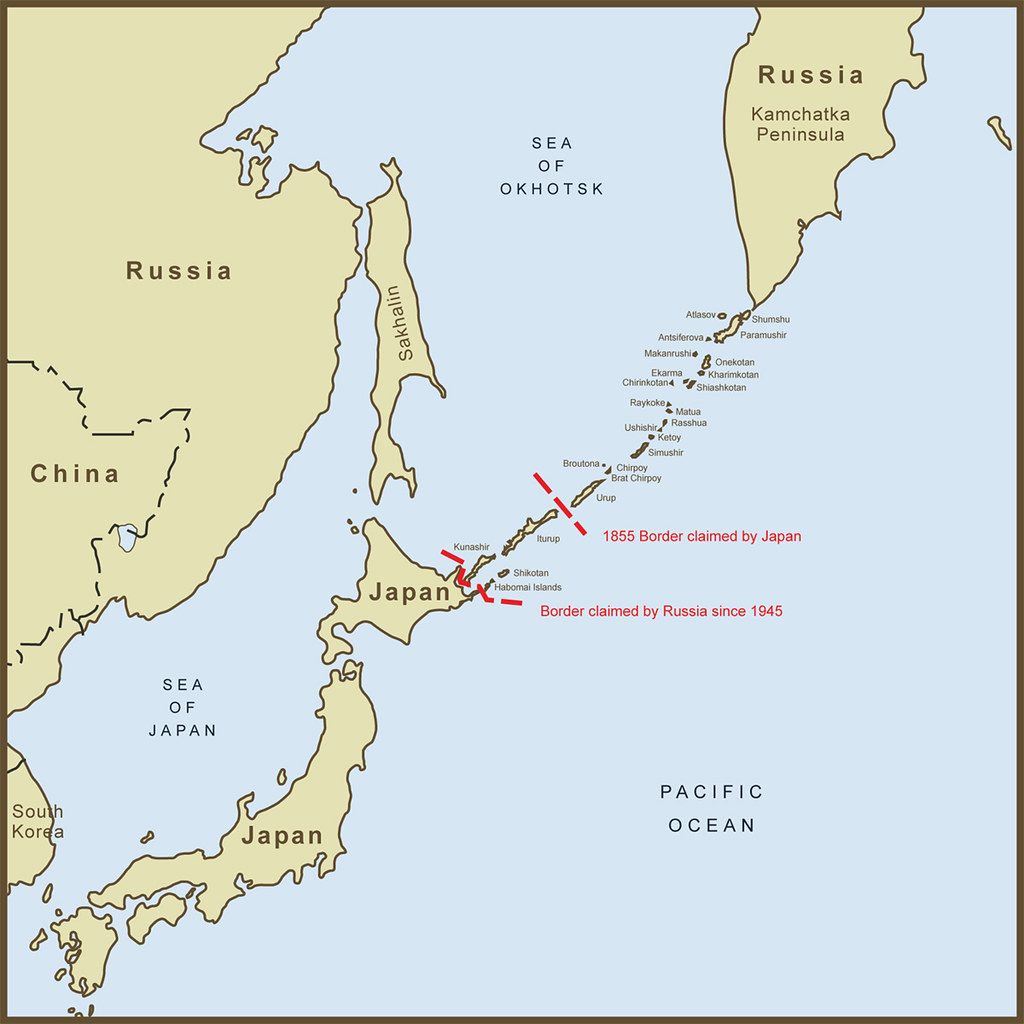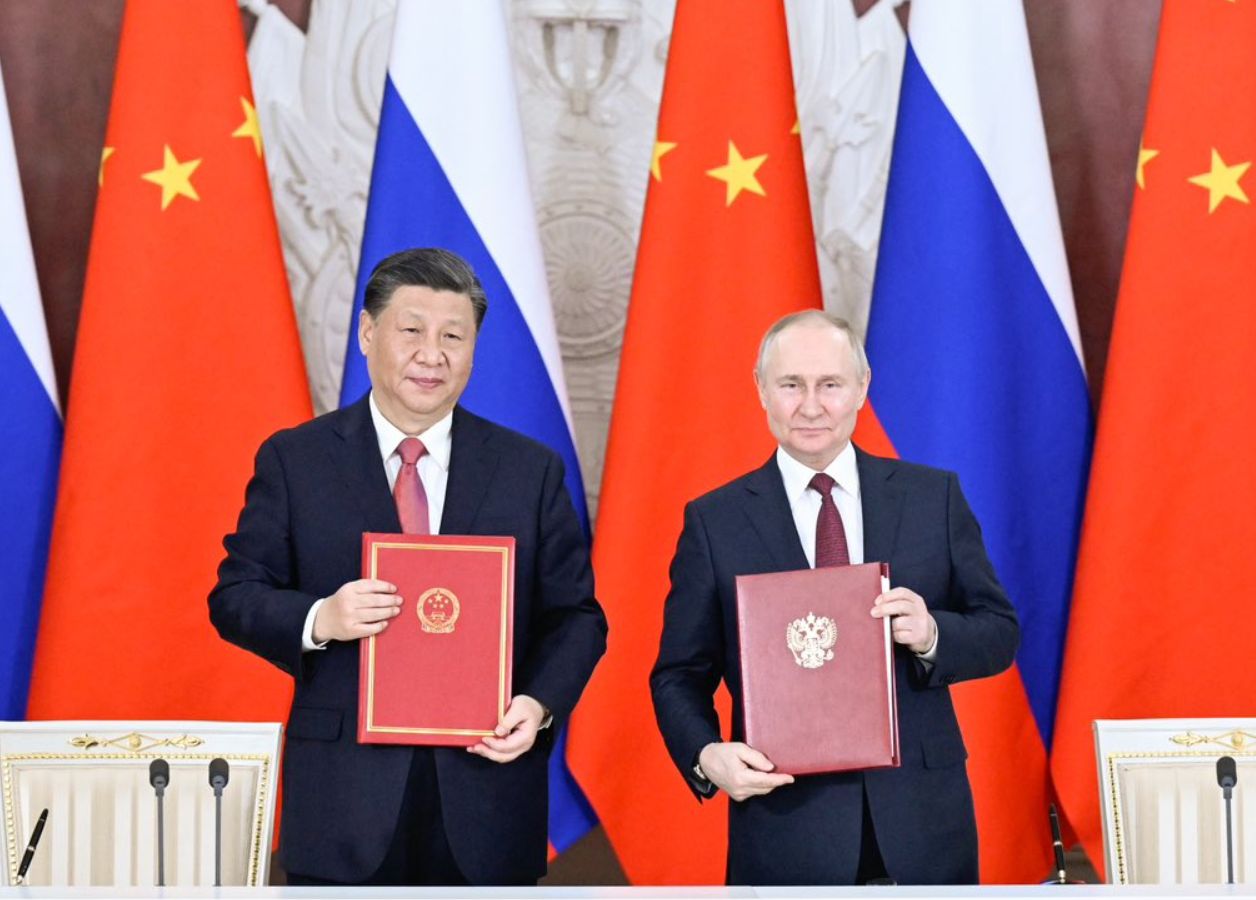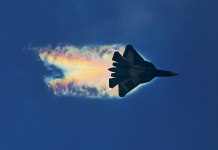In a move likely to exacerbate tensions between Moscow, Tokyo, and Beijing, Chinese President Xi Jinping said he did not support Japan’s claim over the Russian-held islands off Hokkaido in his talks with Russian counterpart Vladimir Putin last month.
This is a significant shift to neutrality from China’s position indicated by then-Chinese leader Mao Zedong in 1964 to view the four disputed islands as belonging to Japan.
Although nuanced, Xi’s new stance on the disputed island is ambivalent. On the one hand, he has interred a six-decade-old policy, but on the other stayed away from committing to participate in a proposed special duty-free zone on the island.
Xi said he would leave the matter to Zheng Shanjie, chairman of the National Development and Reform Commission.
The shift in Beijing’s stand coming on the backdrop of the Ukraine war is significant as the issue directly impacts Japan, a staunch US ally and NATO member. Also, the war has worked as a gel in cementing the political, military, and economic linkages between Moscow and Beijing.
Known as the Northern Territories in Japan and the Southern Kurils in Russia, the 10,503 square kilometers of islands, with approximately 20,000 people, are rich in hot springs, minerals, and rare earth metals, such as rhenium, used to produce supersonic aircraft.
The speculation dates back to September 2010, when China and Russia issued two joint statements committed to “support each other on sovereignty, unity, and territorial integrity.”
The inference drawn is that the statements indicated a Sino-Russian united front was reached in pressing their claims to the disputed areas with Japan.
However, the wording is ambiguous at best, leaving out explicit mention of the disputed areas while specifically mentioning joint support for their positions on Taiwan, Tibet, Xinjiang, the Caucasus region, and former Soviet countries.
China considers the Northern Territories, as put by the Chinese Foreign Ministry, “a bilateral issue between Russia and Japan; China wishes for the two sides to resolve the issue through friendly negotiation properly.” Backing Russia would contradict that position. More notably, China’s actions suggest a tacit recognition of Japanese sovereignty.
Currently, on the world atlas published by the People’s Liberation Army, the borderline between Japan and Russia is drawn above Iturup (the northernmost island of the Northern Territories) with a note “Occupied by Russia” next to each of the four disputed islands. In addition, the atlas uses the Japanese, rather than Russian, names of the islands.

There is a history of China siding with Japan on this. Although China had voiced support for the Soviet claim over the Northern Territories in the 1950s, the deterioration of Sino-Soviet relations in the 1960s resulted in Beijing’s public and unequivocal support of Japanese sovereignty in the following three decades.
In 1965, Mao Zedong publicly supported Japan’s right to reclaim the four islands. After the Sino-Soviet border dispute in 1969, China began to mark the islands as Japanese territory but with a note “Occupied by Russia” on Chinese maps.
In the 1970s, China condemned the Soviet desire to “permanently occupy the Northern Territories, which always belonged to Japan,” and expressed the Chinese people’s “unswerving support of Japanese people’s patriotic and just actions to reclaim the Northern Territories.”
In 1983, Chinese Foreign Minister Wu Xueqian observed during a visit to Japan that “Japan’s demand for the Soviet to return the Northern Territories is a just cause to maintain its territory and sovereignty, and we resolutely support it.”
During Premier Li Peng’s 1989 visit to Japan, he committed to Prime Minister Noboru Takeshita that China supported Japan’s demand for the return of the Northern Territories and reaffirmed that China thought the claim justified.
China’s unambiguous public support of Japanese sovereignty of the Northern Territories only gradually disappeared after the 1989 Tiananmen Square massacre, when an isolated Beijing sought to improve relations with Moscow again.
Talks between Moscow and Tokyo over the islands have been suspended since Japan imposed sanctions against Russia following its invasion of Ukraine. The change in China’s position could make it more challenging to settle the decades-long dispute as Moscow is unlikely to concede on the issue now with backing from Beijing.
Recently, fearing China’s regional ambitions, Japan has entrenched its ties with NATO, which wants to limit China’s and Russia’s global reach, including in the Pacific region. Under US protection and backing, Japan has become more vocal on regional issues, and its Kuril Islands dispute with Russia is gaining traction.
As the Russian offensive raged across Ukraine in March, Japanese Foreign Minister Yoshimasa Hayashi revived Tokyo’s claims on the southern Kurils, describing the region as an “integral part” of the Pacific state. For the first time in two decades, in April last year, the Japanese government described the Kuril Islands as the area illegally occupied by Russia in its Diplomatic Bluebook.

“The sovereignty of our country extends to the Northern Territories (Kuril Islands). The government has not changed its stance on this matter. The subject of negotiations on the conclusion of the peace treaty [with Russia] is the ownership of the four islands. This is Japan’s consistent position,” Japanese Prime Minister Fumio Kishida said at a hearing in the upper house of Japan’s parliament.
“The issue in question can no longer be delayed, and Japan will continue the efforts to resolve it based on previous agreements, including December 2018 deal signed by the countries in Singapore,” Kishida noted.
In 2018, Japan and Russia agreed to speed up negotiations on the peace treaty based on the Japan-Soviet Joint Declaration of 1956, in which Moscow agreed to consider the possibility of transferring the Habomai and Shikotan islands (two of the four islands) should a peace treaty be signed.
Russia, China In Catch-22 Situation
Moreover, for Russia’s part, such a move would also be strategically unrealistic. While Russia is pursuing a good relationship with China, it hesitates to align itself with the PRC on territorial disputes with Japan.
Russia must consider the consequence of what many see as China’s unchecked ambition, rising military activities in East Asia, and the US reaction to Russian involvement in the Senkaku/Diaoyu dispute. In addition, Russia does not wish to alienate Japan.
There’s an even more straightforward reason Moscow does not need to risk backing China. Russia already has control over the disputed territories.
- Mail the author at rmanojmenon (at) gmail.com
- VIEWS PERSONAL OF THE AUTHOR
- Follow EurAsian Times on Google News




